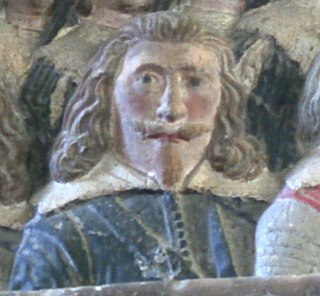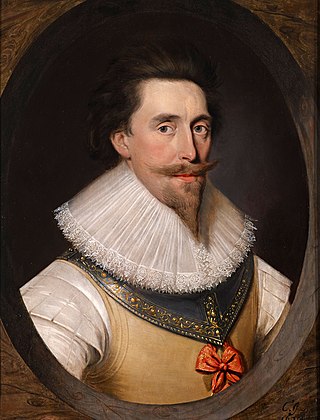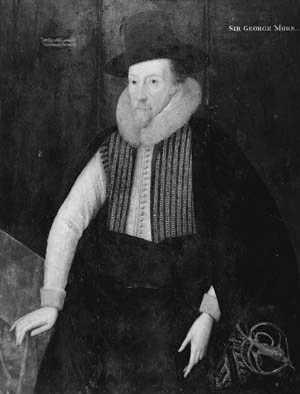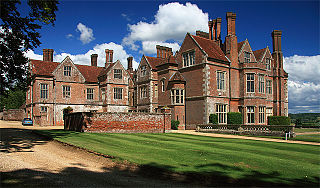Related Research Articles

William Strode was an English politician who sat in the House of Commons variously between 1624 and 1645. He was one of the Five Members whose impeachment and attempted unconstitutional arrest by King Charles I in the House of Commons in 1642 sparked the Civil War, during which he fought on the Parliamentarian side.

Richard Neile was an English churchman, bishop successively of six English dioceses, more than any other man, including the Archdiocese of York from 1631 until his death. He was involved in the last burning at the stake for heresy in England, that of the Arian Edward Wightman in 1612.
George Dodington of Eastbury Park, Dorset was a merchant, office holder and Whig politician who sat in the English and British House of Commons from 1705 to 1720, under the patronage of Edward Russell, 1st Earl of Orford.
Weymouth and Melcombe Regis was a parliamentary borough in Dorset represented in the English House of Commons, later in that of Great Britain, and finally in the Parliament of the United Kingdom. It was formed by the Union of Weymouth and Melcombe Regis Act 1571 which amalgamated the existing boroughs of Weymouth and Melcombe Regis. Until 1832, the combined borough continued to elect the four Members of Parliament (MPs) to which its constituent parts had previously been entitled; the Great Reform Act reduced its representation to two Members, and the constituency was abolished altogether in 1885, becoming part of the new South Dorset constituency.

Francis Fane, 1st Earl of Westmorland, of Mereworth in Kent and of Apethorpe in Northamptonshire was an English landowner and politician who sat in the House of Commons between 1601 and 1624 and then was raised to the Peerage as Earl of Westmorland.

There have been two baronetcies created for members of the Codrington family, one in the Baronetage of Great Britain and one in the Baronetage of the United Kingdom. The family was for a long time connected with Dodington Park.
Sir Christopher William Codrington, of Dodington, Gloucestershire, was a Conservative British MP for East Gloucestershire between 7 August 1834 and 24 June 1864 and a landowner in Gloucestershire.

The Long, later Tylney-Long Baronetcy, of Westminster in the County of London, was a title in the Baronetage of England. It was created in 1662 for Robert Long.
Richard Lewknor was an English politician who sat in the House of Commons between 1621 and 1629.

Sir George More was an English courtier and politician who sat in the House of Commons at various times between 1584 and 1625.
Sir William Uvedale was an English politician who sat in the House of Commons at various times between 1614 and 1645. He supported the Royalist cause in the Civil War.

Sir William Strode (1562–1637) of Newnham in the parish of Plympton St Mary, Devon, England, was a member of the Devon landed gentry, a military engineer and seven times a Member of Parliament elected for Devon in 1597 and 1624, for Plympton Erle in 1601, 1604, 1621 and 1625, and for Plymouth in 1614. He was High Sheriff of Devon from 1593 to 1594 and was knighted in 1598. In 1599 he was appointed Deputy Lieutenant of Devon. There is a monument to him in the parish church of Plympton St Mary.
Sir Talbot Bowes was an English politician who sat in the House of Commons at various times between 1593 and 1629.

Sir William Doddington (1572–1638) was an English landowner and politician who sat in the House of Commons from 1621 to 1622.
Sir Arthur Lake (1598–1633) was an English politician who sat in the House of Commons from 1624 to 1626. His reputation was badly damaged by the notorious Lake-Cecil feud which lasted from 1617 to 1621, and both scandalised and fascinated the Jacobean Court.
Sir William Beecher (1580–1651) was an English diplomat, soldier and politician who sat in the House of Commons at various times between 1614 and 1629.
Henry Woodhouse, of Hickling and Waxham, Norfolk, was an English politician.
Northmoor is an historic estate in the parish of Dulverton in Somerset, England. The Victorian mansion house known as Northmoor House is set amongst steep wooded valleys on the southern edge of Exmoor.
Sir William Codrington, 2nd Baronet (1719–1792) was an English politician who sat in the House of Commons between 1747 and 1792.
Sir William Codrington, 1st Baronet, of Dodington Park, Gloucestershire, was a British landowner and politician who sat in the House of Commons from 1737 to 1738.